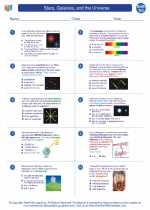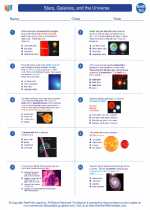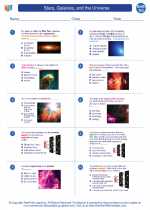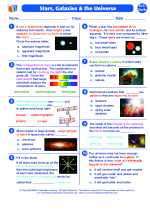Volcanoes
Volcanoes are openings in the Earth's crust through which molten rock, gases, and ash erupt. They are typically found at tectonic plate boundaries, where the Earth's lithosphere is either being pulled apart or pushed together.
Types of Volcanoes
There are several types of volcanoes:
- Shield Volcanoes: These are broad, gently sloping volcanoes built by the eruption of low-viscosity basaltic lava. They are common in Hawaii.
- Stratovolcanoes: Also known as composite volcanoes, these are steep-sided and built by the eruption of viscous lava, ash, and rock fragments. Examples include Mount St. Helens and Mount Fuji.
- Cinder Cone Volcanoes: These are the smallest type of volcano, typically only a few hundred meters tall. They are built from ejected lava fragments that accumulate around the vent.
Volcanic Eruptions
Volcanic eruptions can take several forms:
- Explosive Eruptions: These eruptions are characterized by the violent ejection of volcanic materials, such as ash, rocks, and gas. They can be highly destructive and are associated with stratovolcanoes.
- Effusive Eruptions: These eruptions involve the relatively gentle outpouring of lava. They are typical of shield volcanoes and are not as explosive as other types of eruptions.
Effects of Volcanic Eruptions
Volcanic eruptions can have several immediate and long-term effects:
- Ashfall: Volcanic ash can blanket large areas, affecting air quality and visibility.
- Lava Flows: Molten rock can flow downhill, destroying everything in its path.
- Pyroclastic Flows: These are fast-moving currents of hot gas and volcanic matter that can be deadly and destructive.
- Climate Effects: Volcanic eruptions can release gases and particles into the atmosphere, affecting global climate patterns.
Studying Volcanoes
To study volcanoes, scientists use a variety of tools and techniques:
- Seismometers: These instruments are used to detect and record earthquakes associated with volcanic activity.
- Gas Sensors: These devices measure the types and amounts of gases emitted by a volcano, which can provide important clues about its behavior.
- Remote Sensing: Techniques such as satellite imaging and aerial photography are used to monitor changes in a volcano's surface.
- Geological Mapping: Scientists conduct fieldwork to study the rock formations and landforms associated with volcanic activity.
Protecting Against Volcanic Hazards
Communities located near active volcanoes must take steps to protect against potential hazards:
- Evacuation Plans: Local authorities should have well-defined plans for evacuating residents in the event of an eruption.
- Monitoring Systems: Communities can install networks of sensors to detect changes in volcanic activity and provide early warnings.
- Building Codes: Structures in volcanic hazard zones should be built to withstand ashfall, earthquakes, and other volcanic effects.
Conclusion
Volcanoes are powerful geological features that can have a significant impact on the environment and human societies. Understanding their behavior and mitigating their hazards is an important area of study in earth science.
[Volcanoes] Related Worksheets and Study Guides:
.◂Earth Science Worksheets and Study Guides High School. Stars, Galaxies, and the Universe

 Worksheet/Answer key
Worksheet/Answer key
 Worksheet/Answer key
Worksheet/Answer key
 Worksheet/Answer key
Worksheet/Answer key
